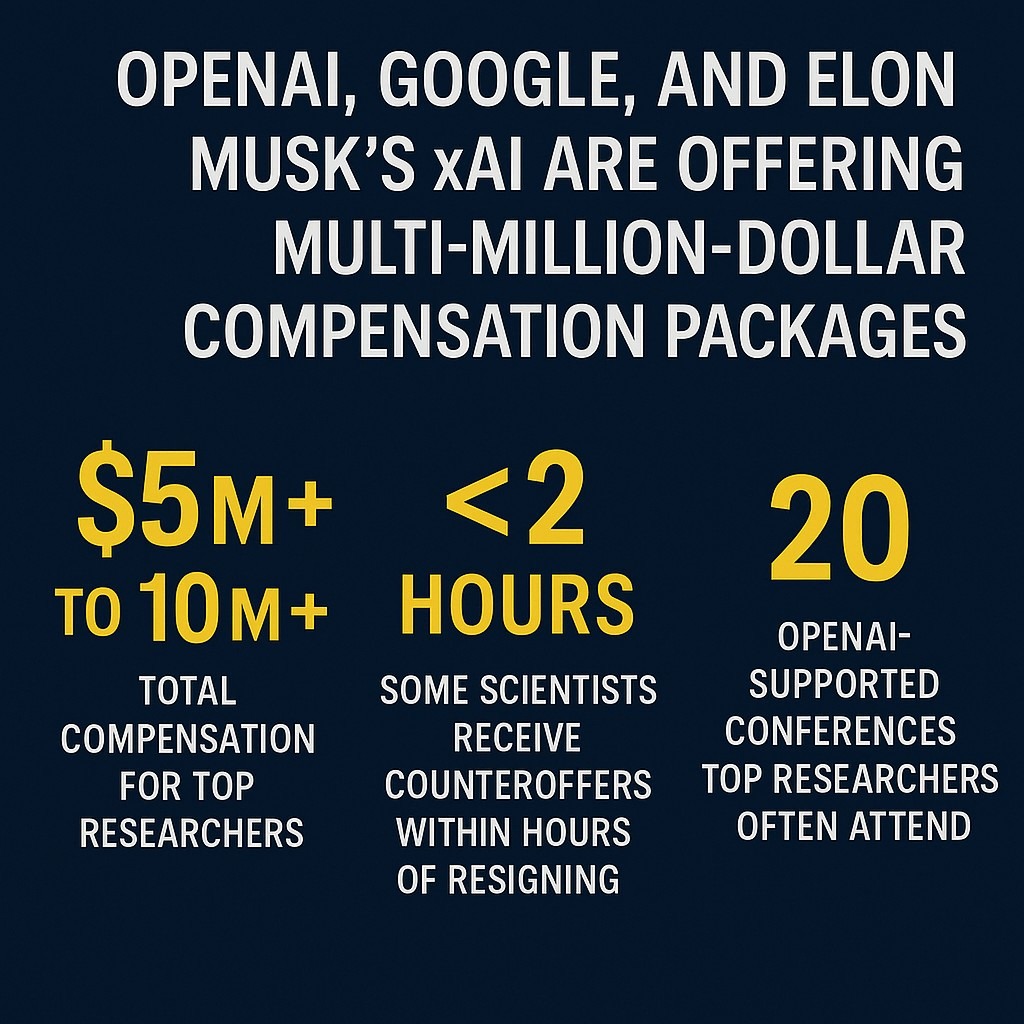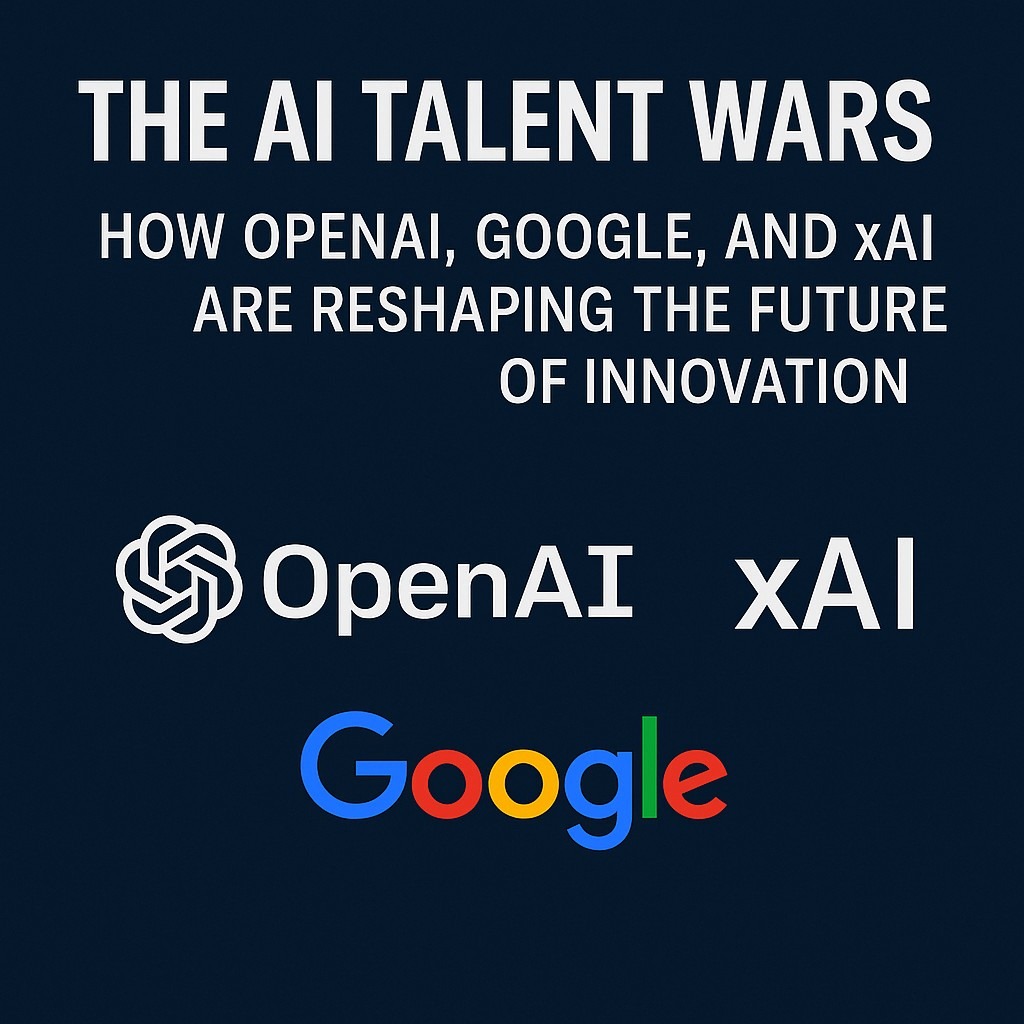The race for artificial intelligence supremacy is heating up and it’s not just about algorithms anymore. Major tech companies are now battling over the world’s top AI talent. OpenAI, Google, and Elon Musk’s xAI are offering multi-million-dollar compensation packages to attract the best minds in the field.
This high-stakes recruitment war is already transforming the industry. But what does it mean for innovation, ethics, and the broader tech ecosystem?
A War Fueled by Billions
In recent months, top researchers have received offers ranging from $5 million to $10 million in total compensation. These packages often include equity, cash bonuses, and freedom to publish research. According to Reuters, some scientists have even received counter-offers within hours of resigning.
Not surprisingly, OpenAI is a dominant player. Backed by Microsoft, it’s flush with resources. Meanwhile, Google DeepMind is fighting to retain its top talent amid increasing competition. Elon Musk’s xAI, still a relative newcomer, is aggressively hiring from both.
This rivalry is about more than headcount. It’s about who will control the future of AI.
Innovation at Risk?
While this talent war accelerates breakthroughs, it also introduces challenges. First, it concentrates talent within a few powerful companies. This limits the diversity of ideas and slows open innovation. Smaller startups, already struggling for funding, can’t compete with these offers.
Second, ethical concerns may be sidelined. When pressure mounts to deploy AI quickly, safety can become an afterthought. For instance, some insiders have warned that rapid development might outpace regulatory safeguards. As a result, the public could face unintended consequences.
Despite these risks, companies continue to prioritize speed. In today’s market, the first to release a new model often reaps the largest rewards.
The Cost to the Broader Ecosystem
The effects of this talent war go beyond corporate borders. Universities are losing professors to tech firms. Non-profits focused on AI safety are struggling to fill key roles. In turn, public-sector research may lag behind.
Moreover, this trend could widen the global AI gap. Only a handful of countries and corporations can fund such expensive hires. Others risk being left behind, creating long-term geopolitical tensions.
According to The Verge, this phenomenon is already reshaping how research institutions operate. Instead of focusing on long-term goals, many researchers now chase immediate industry rewards.
What This Means for the Future
Clearly, this battle for AI talent isn’t just a headline, it’s a fundamental shift in how technology is built. As companies fight for control, policymakers and educators must adapt. Encouraging more open research, increasing public investment, and creating ethical guidelines are critical next steps.
At the same time, job seekers and tech professionals should stay informed. In a volatile hiring market, opportunities and risks often go hand in hand.
To that end, Fast Company reports that even well-funded firms aren’t immune to volatility. As budgets shift, priorities can change fast.
Conclusion
The AI talent war is reshaping the tech industry one job offer at a time. While big firms race to dominate, the effects ripple far beyond Silicon Valley. Innovation may accelerate, but so do ethical and economic risks.
Staying informed is no longer optional. Whether you’re an entrepreneur, a developer, or simply a curious reader, understanding this talent war helps you navigate the future of tech more wisely.


